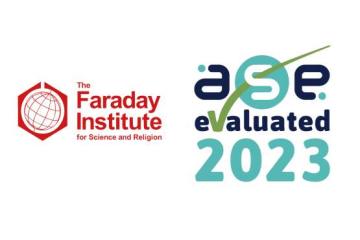Green Tick for Nature of Science Training for Secondary Science Teachers from the Faraday Institute for Science and Religion

Introduction
The Faraday Institute for Science and Religion is a Cambridge-based interdisciplinary research institute aiming to improve public understanding of religious beliefs in relation to the sciences. Their online interactive workshop about the nature of science offers a chance for participants to consider curriculum-relevant ways in which they can explore the ‘Nature of Science’ with their students. The workshop provides a cocktail of information, discussion and exploration of resources and is supported by a ‘Key messages’ sheet.
The workshop addresses an aspect of CPD identified by Ofsted in their recent science review: ‘Evidence suggests that CPD should align with the curriculum and include teachers learning about the nature of science and its methods – which we [Ofsted] broadly refer to as “disciplinary knowledge” in the review’1. It supports teachers to help their students to develop scientific literacy, critical thinking and an understanding of how science can interact with other subjects to offer holistic solutions to world problems and big questions.
Course structure
The ninety-minute workshop is ably supported by pre-course reading, which introduces the topic, provides a rationale and sets the scene well by asking participants to consider some key questions about the nature of science. The rationale for the workshop is clearly linked to the GCSE science requirements for students to:
- To appreciate the power and limitations of science;
- Consider any ethical issues that may arise;
- Explain everyday and technological applications of science; and
- Evaluate associated personal, social, economic and environmental implications.
The online workshop itself begins with introductions and reminds participants of the key questions considered within the pre-course reading and the rationale for the course. It then continues by exploring several key questions:
- How does science fit into the whole human endeavour?
- The scientific method.
- The power and limitations of science.
- To what degree can science claim objective truth?
- What questions might young people ask that are relevant to science curricula, but which science cannot fully explore?
- What kind of people do we want to train up?
The workshop is supported by an engaging and thought-provoking PowerPoint presentation with well-chosen images, examples and a meaningful commentary: for example, the power of science and a consideration of beauty, awe and wonder. Reflections and discussion tasks are interspersed with the commentary and feedback is used to shape the commentary itself. Messages about individual students’ beliefs are considered in the context of the nature of science: for example, ethics and personal, social, economic and environmental implications. There is consideration of how science education may be strengthened by links to Religious Education, History and PSHSE, and how religious beliefs of students do not have to be in conflict with science, as science and religion explore different elements of similar big questions.
The course concludes with a paired or small group exploration of a bank of resources that support students learning about the nature of science. The resources cover topics including:
- A play-reading about the development of ideas about atomic structure from Democritus to Rutherford and Chadwick;
- An investigation into bouncing balls, which considers controlling variables, repeatability, reliability, accuracy, certainty and uncertainty, and drawing valid conclusions;
- A reader exploring the history of science;
- An ‘ideas and evidence’ resource about the formation of the Moon; and
- A data reliability exercise in the context of magnetic fields.
Conclusions
The main part of the workshop lasts about an hour and the resource exploration about thirty minutes. The interactive nature of the workshop supports real engagement for participants, particularly as their ideas and beliefs are elicited and valued. Ninety minutes is a manageable length for teacher engagement after a day in school and yet provides them with sufficient background about the topic and some resources that can be used with students immediately, or adapted depending on student ability or need.
At £50, the course represents good value, particularly as it is supported by the bank of resources and a key messages sheet. These would allow participants to cascade training to their department in order to support uniformity of approach.
1Finding the optimum: the science subject report, Ofsted, 2023 https://www.gov.uk/government/publications/subject-report-series-science...
